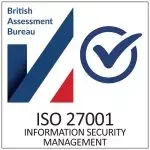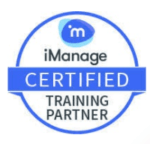
Employee performance reviews are a vital part of managing the performance of an organization as a whole. They are meant to provide a formal framework for evaluating employee behavior and success, but also provide a conversation between employees and management.
These conversations are often conducted in the context of a performance discussion and are not meant to be punitive. However, they can be just as effective if they are conducted in a constructive way that provides employees with feedback and direction.
IN THIS ARTICLE...
What is Employee Performance?
Employee performance is the measurement of an employee’s ability to carry out the tasks assigned to them. This is usually measured through a review at the end of each performance cycle. Reviews are important because they allow employers to determine if the employee is meeting expectations.
Reviewing staff performance should also allow managers to receive feedback from employees on how to improve their performance. Employee reviews are a valuable tool for both employers and employees.
What is an Employee Performance Review?
A performance appraisal or staff performance review is a formal meeting where the employee and the manager discuss their achievements and goals for the previous and coming periods.
This review is also a way for managers to assess the work of their employees and make sure they are doing their jobs well. This is a useful tool for managers to use to assess the performance of their employees.
An employee review is a powerful tool that can help improve employee engagement and motivation. Employee performance is an important part of the employee engagement process and is a valuable tool for managers to use.
How to Review Employee Performance
The first step in reviewing staff performance is to look at the annual review. The annual review can be done at the same time as the performance review. The annual review is a chance to take a look at the past year, reflect on what worked, and plan for the future. This also offers a chance to take a look at what has changed and what has stayed the same.
This is the one time you should look at the past year and see what changes you would like to make. If you have ever done an employee review, you know that it can be a long and tedious process. It is important to make the process as easy and painless as possible.
The annual job performance review should be done in the same way as any other performance review. In other words, it is important to use the same criteria when reviewing the annual achievements that you used for reviewing performance in general. This helps to ensure that you are reviewing the same aspects and maintaining consistency.
Why do Performance Reviews Matter?
Reviewing performance is a crucial part of any company’s culture. They are important for the organization as a whole and for the individual employees who work there.
These reviews are important for a business because they are a way for the company to identify and correct poor performance. They are also important for the employee because they provide an opportunity to evaluate their performance and to improve their performance.
A review is not a one-time event. It is a process that takes place over time. To be successful, a review should take into account the employee’s performance over the last few years.
What are the Benefits of Reviewing Staff Performance?
Performance reviews are a vital method for improving employee performance and achieving greater levels of engagement. Reviewing performance can help you to improve your company culture, boost morale, and identify areas for further growth.
A performance meeting is an opportunity for the employee to receive feedback about their performance. It is a chance for employees to improve their performance and it is also a chance for the company to assess their progress.
It is not a punishment or an opportunity to punish. It is a chance for the company and the employee to work together to ensure they are on the same page. It is a chance for the company to find out what they need to do to motivate the employees and support them.
The review process will not always be easy. It will not always be fun. The goal, though, is to make reviews a regular component of the performance process.
The process helps employees and managers understand one another’s strengths and weaknesses; it provides a great opportunity for employees to share their feedback with managers, and it helps managers identify and develop future leaders in the company.
How to Review Staff Performance Effectively
Performance reviews are a necessary component of any business. As a manager, you need to be able to know how your employees are doing on a day-to-day basis, and the best way to do this is to conduct regular reviews.
However, conducting a review isn’t something that can be done without some planning. There are many different aspects of reviewing performance that need to be considered, and there is an art to it that should be taken into consideration.
The most important of these aspects is the setting. Make sure that you’re in a place where your employee is comfortable and will not be distracted. This type of review is also not something that should be done in a public place.
You should set a time that is convenient for both you and your employee. You should also take into consideration the type of employee you have. As a manager, you can’t review someone who doesn’t want to be there.
Reviews are the most important part of the performance improvement process. While it can be difficult to give feedback to your employees, it’s important to do so in a way that will help them improve. Here are some tips on how to review performance effectively.
- Develop a review template with specific criteria.
- Evaluate the review template with your manager.
- Conduct a sample review with your manager.
- Keep the conversation focused on the employee’s strengths.
- Offer feedback on their performance in a way that is positive, constructive, and helpful.
When you are giving reviews, it is important to keep in mind certain things. One of the most important things is to ensure that you go into detail about how a person is performing. To do this, you’ll need to create a detailed checklist for all the work that a person is doing.
To be effective, employee reviews need to be done objectively and have measurable consequences. If an employee is not meeting their goals or milestones, there needs to be a consequence for that, and it needs to be clear.
Preparing for an Employee Performance Review
If you are going to carry out a review, you must prepare for it. Preparing for a performance review is an important part of your job as a manager. To do an effective review, take the time to prepare. There are many ways to prepare, but the most important thing is to prepare yourself.
You should research the reviewing process so that you understand what to expect – if you are reading this article then you are already on the right track.
At the beginning of each review period, be sure to set out clear expectations. Set up a time for the review, put together a list of questions, and gather the necessary information from your staff members. It will also be helpful to have a sample rating of what you’re going to be looking for.
Don’t forget to think about your mental state when carrying out employee reviews. Make sure that you are well-rested and ready to go. If you are stressed, it will be harder for you to adequately interview your staff members. Remember that you’re doing this for their benefit, so take the time to show them that you care.
Year-End Review Tips for Employees
Here are 5 useful year-end review tips for employees to prepare for and make the most out of their review:
- Reflect on your accomplishments. Take some time to think through the past year and make a list of your major contributions, successes, and areas where you met or exceeded goals and expectations. Quantify your accomplishments with numbers when possible. This will help you provide concrete examples during your review.
- Gather examples and data to support your self-assessment. Don’t just show up with a list of accomplishments. Back up what you’ve contributed with evidence like emails, reports, feedback from colleagues/clients, or links to your work. Data goes a long way in demonstrating your impact.
- Consider where you can improve. Self-criticism is important too. Show you have perspective on your shortcomings and ideas on how you can enhance specific skills or address areas needing development. Come with a plan.
- Set objectives and goals for the coming year. Help set expectations by laying out what you want to achieve moving forward. Align individual goals to team and organizational objectives. Outline resources or support you’ll need as well.
- Prepare questions to ask your manager. Make the review a two-way conversation by asking for your manager’s feedback on your ideas for goals, their expectations looking ahead, or where they think you need to focus developmental efforts.
Being proactive sets you up for a better review experience and showcases you as engaged, motivated, and committed to doing great work.
How Often Should Performance Reviews Be Conducted?
There is no standard answer to how often to do performance reviews. The frequency with which you need to conduct performance reviews depends on your business. For example, if you are a startup company with a high turnover, you might need to conduct a review every quarter. However, if you are a large company, you might conduct reviews annually.
In general, there are two types of performance reviews: annual reviews and 360-degree reviews. Annual performance reviews are usually conducted at the end of the working year, and 360-degree reviews are often quarterly.
When employee reviews are conducted too often, it can be a distraction for the individual being evaluated and can be a drain on the organization’s resources. If reviews are conducted too infrequently, it can be difficult for an employee to grow and develop professionally.
Conducting an Effective Performance Review
The employee performance review is a crucial stage in the employee-employer relationship. It helps to establish the company’s goals, policies, and expectations while providing employees with a way to improve their performance.
It is also a chance for employers to assess their team member’s performance and provide them with feedback and recommendations for how to improve. This process should be carried out with care and should help to strengthen the relationship between the two parties.
If a review is done well, the employee should leave feeling valued and motivated to succeed. There are three steps to setting up this type of review:
- The first is for the manager to clearly define the employee’s performance goal/objective.
- The next step is for the manager to identify the factors that are essential to success.
- Lastly, the final step is for the manager to create a plan of action that will lead to success.
When reviewing staff performance, you should use a checklist to make sure you cover all the necessary items. You’ll need to get the employee’s feedback in the review. As part of the interview, ask the employee about the last two to three months of performance. Ask about their goals, and how they’ve been doing in reaching their goals.
These reviews should reveal new insights into the employee’s strengths and weaknesses. This can help the company grow, and it can also help the employee grow in their career.
How to Improve the Performance of Employees
Employee performance is one of the key components of a successful company. To help you improve employee performance, try the following:
- You can improve your employee’s performance by providing them with clear goals.
- Ensure that there is a positive environment with a culture that is focused on growth and improvement.
- You can also review the work that employees are doing and help them grow. Employees who are allowed to grow in their jobs are less likely to leave.
- Create a performance management plan, a framework that is put together by management to give employees performance feedback on how to improve. When you are creating a performance management plan, it is important to be specific and tie your feedback to specific goals that are important to the company.
You should also be aware of what your employees are thinking. You can do this by conducting regular employee surveys. These surveys can help you to identify the areas for improvement, as well as the areas that are working well.
Successfully Review Employee Performance
Creating a robust employee review system can be of great benefit to your company. Understanding how your staff is performing in their roles and how they are feeling in their work life is crucial to maintaining a healthy and productive workforce.
There are many ways to do an employee performance review, and it’s important to find what works best for you. We hope the guidance provided above will help you when planning your review process and give you insight into how to successfully review, manage, and improve performance in your organization.
Intellek (formerly TutorPro) is a founding member of the learning technology industry. With a presence in the USA, UK, Canada, and the EU – for over 30 years we have pioneered the development of cutting-edge eLearning software and online training solutions, with a large and diverse portfolio of international clientele.
Disclaimer: We use all the tools available including generative AI to create relevant and engaging content.





